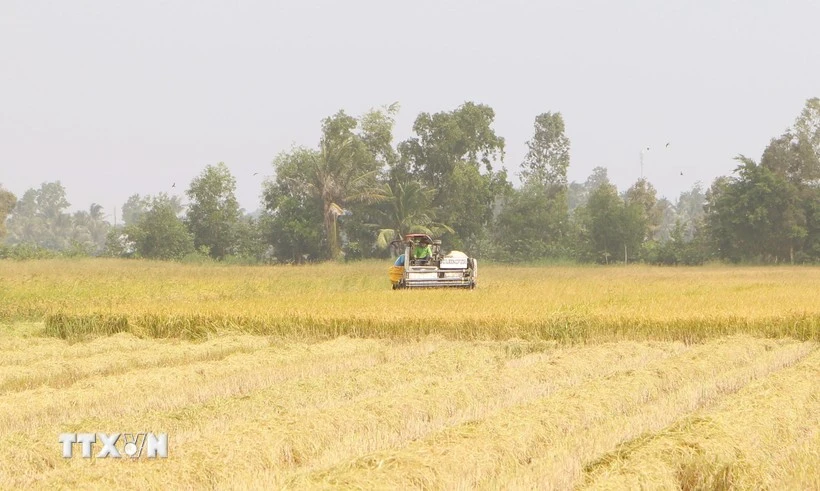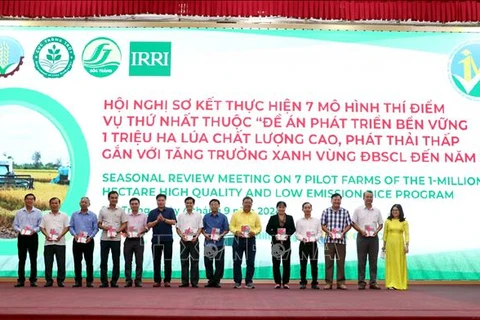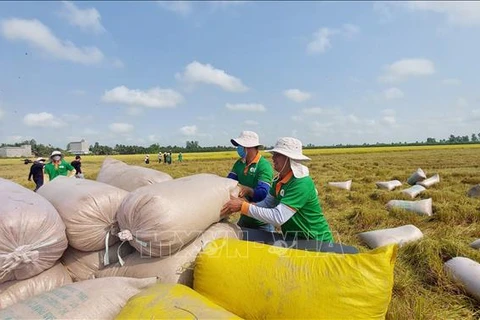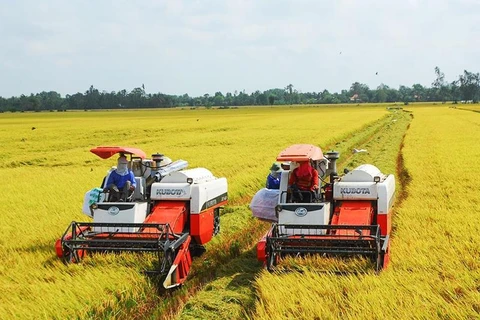
Hanoi (VNA) – A regional forum on low-emission rice farming kicked off in Hanoi on September 9, aiming to promote cooperation, build consensus, and seek viable solutions to address challenges in developing a sustainable rice value chain across landscapes.
Jointly organised by the Ministry of Agriculture and Rural Development (MARD) of Vietnam and the World Bank-led Food Systems, Land Use and Restoration (FOLUR) Impact Programme, the event welcomed 120 attendees, including 70 international delegates from FOLUR Impact Programm’s member countries, UN agencies, international organisations, social and research organisations, and businesses.
Mariam Sherman, Country Director of the World Bank for Vietnam, Cambodia, and Laos, stated that the bank's support for sustainable agricultural transformation projects has recorded significant results in the Mekong Delta region, demonstrating the ability to produce low-emission, high-quality rice.
As a result, profits in the pilot models increased by 30% while production costs decreased by 25%, and CO2 emissions dropped approximately 1.5 million tonnes. This demonstrates that Vietnam’s project to develop one million hectares of high-quality and low-emission rice has the potential to ensure remarkable changes in rice production, attract the participation of private sectors, and contribute to Vietnam's goals of reducing emissions and protecting the environment.
Vietnam has made strong commitments at the UN Food Systems Summit (UNFSS), the 26th United Nations Climate Change Conference of the Parties (COP26) and COP28 to achieve net-zero emissions by 2050. The country has joined an initiative to reduce global methane emissions, as well as pledged to implement the Glasgow Leaders' Declaration on Forests and Land Use, the Emirates Declaration on Sustainable Agriculture, and the Resilient Food Systems, and Climate Action.
According to Dr. Nguyen Do Anh Tuan, Director of the MARD’s Department of International Cooperation, the project to develop one million hectares of high-quality and low-emission rice, which was approved last year, requires joint efforts from government agencies, private sectors, businesses, and producers.
Access to finance is a key factor in helping farmers and businesses in the rice value chain invest in new technologies, improve production processes and increase economic efficiency, but businesses, especially small- and- medium-sized ones, and farmers, face many difficulties in accessing financial resources to invest in agriculture, he stressed.
Vietnam is ready to cooperate and share with countries around the world through South-South cooperation in the field of agriculture in general and rice production in particular, he said.
The forum, which will last until September 12, offers an opportunity for participants to discuss policies to enhance access to finance, science and technology, and effective practices in production, distribution, and trade, all geared towards low-emission and sustainable practices for stakeholders in the rice value chain./.






















